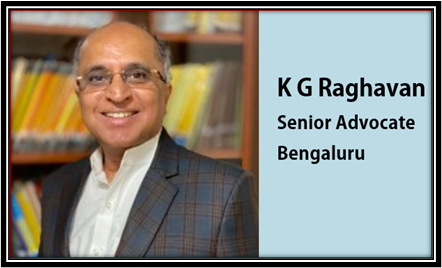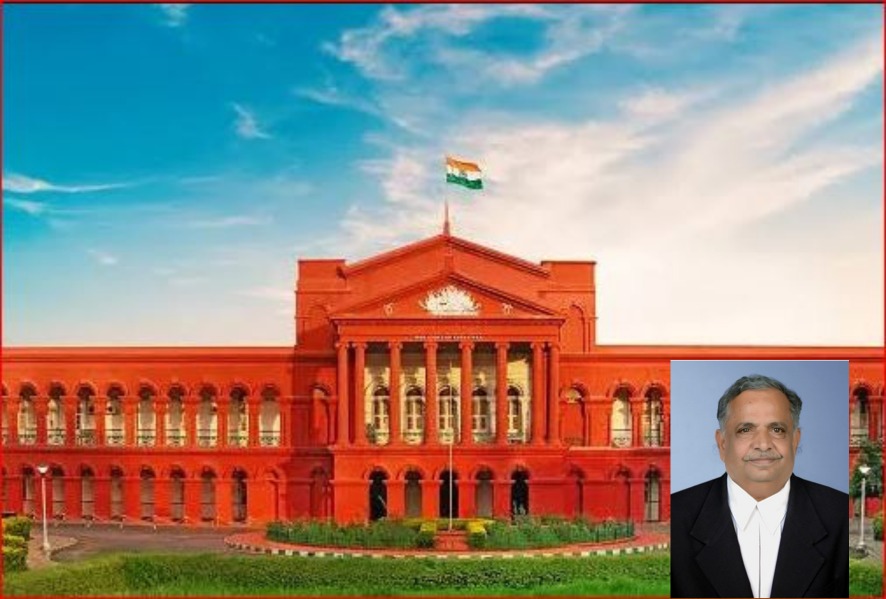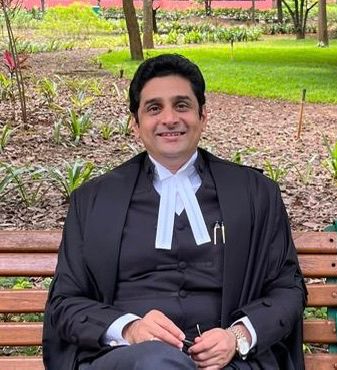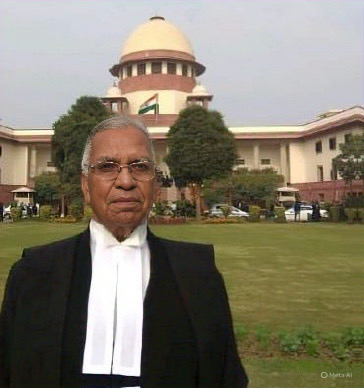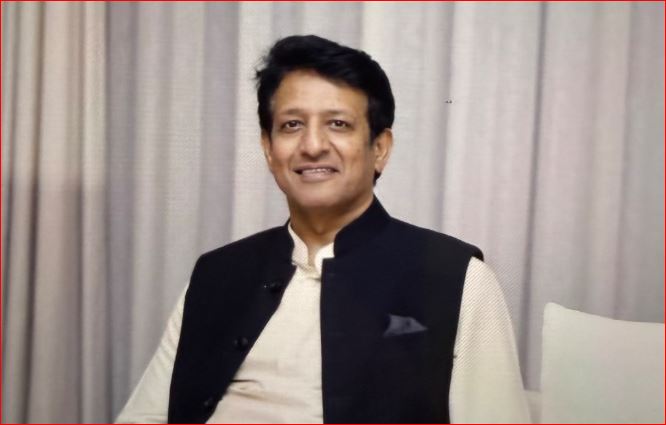Judicial Impartiality
Judicial impartiality, the bedrock of any judicial dispensation system is founded upon two principles:
1. Justice must be done.
2. Justice should be seen to been done.
These principles were laid down in R v. Sussex Justices, ex parte McCarthy [1924] 1 KB 256 Lord Hewart declared: “It is not merely of some importance but is of fundamental importance that justice should not only be done but should manifestly and undoubtedly be seen to be done.” thereby emphasizing that the mere appearance of any sort of bias could be as harmful as actual bias. The aforesaid judgement is quoted with approval by the Indian Supreme Court in State of West Bengal v. Shivananda Pathak AIR 1998 SC 2050.
Opinionated Judge
Judges are human beings. They have and are entitled by virtue of their education, experience and perspectives, to develop views on legal and societal matters. But being judges, they should not ideally allow their views to cloud their judgement in the lis before them which they are called upon to decide impartially. It is axiomatic that a human being is a holistic whole incapable of an “Ethical Wall” demarcation. Every individual thought, speech and action are inevitably influenced by factors of time, place and circumstances. The challenge is to find a judicial balance between one’s personal view ingrained in his or her personality and the responsibility of ensuring that such views do not eclipse their duty to decide cases impartially as a judge.
It is therefore essential to distinguish between an opinion developed through factors extraneous to the practice of law and not borne out by reasoned legal analysis on the one hand, and on the other, a judicial decision tainted by actual bias or reasonable probability of bias, which can compromise the integrity of the judiciary and its commitment to impartiality.
Public Confidence & Judicial Legitimacy.
The judiciary’s legitimacy hinges on public trust in its impartiality. Yet, judges - like all individuals who are products of their environment, possess perspectives shaped by their education, experiences, and values. This raises a critical question: Do judges disqualify themselves in a cause merely because they have a personal view on a certain matter? In other words, do such perspectives undermine a judge’s ability to adjudicate without letting personal bias interfere?
Judicial impartiality is a commitment to decide cases based on their merits, free from any prejudice, bias, favouritism, or undue influence. One of the principles of Natural Justice is central to this commitment. It is “Nemo judex in causa sua - no one should be a judge in their own cause”. It emphasises and mandates the requirement for adjudicators to be neutral and not have any personal interest in the case. Does having a personal view on a subject constitute having personal interest? Does personal interest include not only pecuniary interest but also an attempt to promote one’s ideology or thought process?
To the questions posed above, the answer is no, provided the judge separates personal beliefs from legal analysis. Judicial impartiality requires decisions based on merits, not prejudice.
Judicial Bias vs. Opinion
Judicial bias is a predisposition that renders a judge incapable of impartial adjudication. In contrast, a personal opinion held by a judge can be considered as a justifiable stance based on the judge’s knowledge, ideas or previous disposition that does not lead to a conflict of interest or any compromise to neutrality.
Justice Oliver Wendell Holmes, in The Common Law. Little, Brown and Company, 1881, asserted that, “The life of the law has not been logic; it has been experience.”, recognising that, judicial reasoning inevitably gets shaped by context and understanding, not merely by abstraction of the law.
Further, Lord Denning, in Metropolitan Properties Co. v. Lannon [1969] QB 577 observed that, “Justice must be rooted in confidence; confidence is destroyed when right-minded people go away thinking, ‘The judge was biased.’” This brings out a nuance of how perception of impartiality affects a case, as much as it affects actual fairness. He recognises that justice is not solely about the objective reality of an unbiased decision, but also about public perception of the process.
Denning’s jurisprudence stressed on the notion of maintaining public confidence in the judiciary, i.e. it does not just depend on the actual conduct of the judiciary, but also the visible integrity of its conduct. A judge must not only be impartial but must also avoid all such circumstances that may cast any kind of allegation of impartiality in the public's opinion.
However, it should be noted that such public opinion should be reasonable and not farfetched, for, it is impossible for a judge to satisfy the views and expectations of the entire world.
In Ranjit Thakur v. Union of India AIR 1987 SC 2386, it was held: “As to the tests of the likelihood of bias what is relevant is the reasonableness of the apprehension in that regard in the mind of the party. The proper approach for the judge is not to look at his own mind and ask himself, however, honestly. “Am I biased?” but to look at the mind of the party before him.”
Constitutional theorist A. V. Dicey, in his seminal work Introduction to the Study of the Law of the Constitution, emphasised the supremacy of the rule of law over personal discretion in judicial decision-making. He asserted that, “no man is punishable or can be lawfully made to suffer in body or goods except for a distinct breach of law established in the ordinary legal manner before the ordinary Courts of the land.”, illustrating that a judge’s function is not to impose personal views, but to administer settled legal principles.
Eric Posner, Professor at University of Chicago Law School, refines this argument by differentiating between types of bias in his paper, stating that, “Political bias refers to partisan or ideological bias... Personal bias refers to the tendency to decide cases for personal financial gain, to help family and friends...”1 He points out that “the ‘correct’ interpretation of a legal document is often unknowable”, and thus ideological divergence does not automatically imply misconduct. He also says, “When Republican and Democratic judges vote the same way, their political biases do not influence their vote in a measurable way.” Thus, judges may hold political or philosophical perspectives, as long as their decisions are based on legal reasoning.
Ideological Inclinations & Judicial Neutrality
In these modern times political and economic disputes may stem from ideologies like capitalism, socialism and communism. A judge may be leaning in his or her personal thinking towards one or the other of such ideologies. In fact, that a judge has such inclination is truer than not. Does such ideological leaning equate to judicial bias?
The Supreme Court of India, again, in State of W.B. v. Shivananda Pathak, held that mere expression of an opinion does not establish bias; it is only where there is evidence of pre judgement, or a ‘closed mind’ that can render an opinion biased.
This raises an important question: if a judge holds views on subjects like, privacy, equality, or secularism, will that judge be automatically disqualified from adjudicating related matters? The answer should be no. Judges, like all individuals, have the free will to hold views on any subject matter, be it rights of same-sex couples, abortion, live-in relationships or on capital punishment. That ipso facto does not render them incapable of adjudicating such matters, provided that they are able to separate those views from their legal analysis, without letting prejudice bind them. Therefore, as a general principle it cannot be said that a judge is disqualified to adjudicate a matter because the judge holds a personal opinion on a broader perspective of the subject out of which the lis may arise.
Similarly, does wearing religious symbols, such as a turban, a tilak, or a hijab, render a judge biased? Such an assumption would undermine the secular fabric of India’s Judiciary and the Constitution. Judges can maintain personal faith whilst fulfilling their professional obligations. There exists a presumption that these judges are impartial and capable of separating personal from professional identity.
Prof. Elliott Ash is an associate professor at ETH Zurich’s Center for law and economics, Switzerland. In 2022 he and his fellow researchers conducted a study titled “In-Group bias in the Indian Judiciary”2, analysing over 5 million criminal cases from 2010-2018. The study revealed that despite India’s religious polarization, judges do not adjudicate through a biased lens. This is supplemented by statistics and data. The researchers opined “The rest of the literature aside, our finding of a lack of in-group bias in India’s lower courts should be celebrated, not least because it can inform policymakers allocating resources to address the clear and extant social disparities in Indian society.” The study reinforces the constitutional presumption that judges adhere to judicial norms irrespective of personal identity
Cross and Lindquist3 make a critical distinction between judicial role orientation and actual partiality. Role orientation refers to the methodology - textualism, purposivism, etc. that a judge uses to weigh legal questions. These methodological differences do not equate to personal or institutional bias unless the judge exhibits unwillingness to fairly consider the case. The authors note that any sort of judicial disagreement among judges generally stem form methodological differences rather than external influences.
Choi and Gulati similarly contend that judges are more likely to cite opinions of their peers whose ideologies align with their own, but this does not automatically prove that they are biased. Instead, the authors indicate that such patterns reflect continuity and coherence in judicial reasoning.
Some argue that judges who publicly espouse religious beliefs, for instance, by frequently quoting sacred texts in their judgements, should be disqualified from religiously polarized cases. However, such beliefs do not automatically disqualify them. The judiciary operates on the presumption of impartiality, reinforced by judicial oaths. Disqualification hinges on reasonable apprehension of bias in the specific case, not abstract associations.
Emotional Direction Towards Justice Dispensation
The issue takes a different colour when looked at from the point of view of the law arising for adjudication. It’s axiomatic that certain laws can be administered effectively by those who are emotionally connected with the subject matter of the law. To illustrate the point, is it not reasonable to state that a law relating to custody of a child can best be administered by a lady judge as she understands best the emotions of the child vis-à-vis the mother and vice-versa. So too, is it not reasonable to have on consumer panels a consumer activist as a technical member; on pollution prevention authorities (both original and appellate), an environmentalist dedicated to the protection of environment and an animal activist to hear matters arising under laws pertaining to animals including Prevention of cruelty to Animals Act. In fact, it is desirable to have such committed judges in matters of the kinds illustrated above.
Equity & Fairness
Equity was created to make the law fairer when strict legal rules caused hardship. Earlier, judges (called Chancellors) decided these cases based on their own idea of fairness, which led John Selden, a famous lawyer and politician to say that equity changed with the length of the “Chancellor’s foot” - meaning decisions depended on the individual judge and could seem biased. For example, in early English courts, two similar cases might get different results because different Chancellors had different views. In India however, equity is guided by fixed principles, like the rule “equity follows the law,” so remedies such as injunctions or specific performance are decided consistently and not on personal preference. This helps avoid judicial bias and builds trust in court decisions.
Fallout: The Myth of the Opinion-Free Judge
On a conspectus of the several theories of law on bias and the decided cases, it is possible to enunciate the following as the legal principles governing the law of bias vis-à-vis personal view of judges.
1. That opinions of judges on policy matters ipso facto does not mandate that a judge must recuse himself from a cause.
2. That a judge is entitled to hold personal views on matters of policy be it social, religious, economic or political.
3. A judge is presumed to be impartial not allowing personal views to influence judicial decisions.
4. Judicial decisions are not presumed to be tainted due to opinion held by a judge on public matters.
5. Public perception is not to be viewed in isolation; they have to be viewed as part of a larger picture; the perception of an individual as to the impartiality of the judge is a piece in the jigsaw puzzle but is not the entire picture.
6. In certain areas of adjudication, emotions of a judge should and ought to be an integral part of the justice dispensation system. Judges are not robots. Justice dispensation cannot be substituted by AI (Artificial Intelligence).
The demarcation between bias and opinion lies not in personal faith but in judicial conduct. Unless objective evidence demonstrates compromised behavior, ideological alignment does not warrant disqualification. Judicial neutrality does not require the absence of personal beliefs but rather constitutional discipline in adjudication. Holding private opinion on public issues is not an anathema to impartiality of judicial decisions. Right to hold personal opinions by judges is not to be sacrificed at the altar of perceived notions of judicial impartiality. Is a judge bereft of opinion an oxymoron and therefore a mythical and utopian concept, a mirage?
Senior Advocate K.G. Raghavan.
Assisted by, Priyanka Ajjannavar, Advocate.
Shresta K (Fourth Year, PES University).
S Venkat Raghav (Fourth Year, Manipal Law School).
